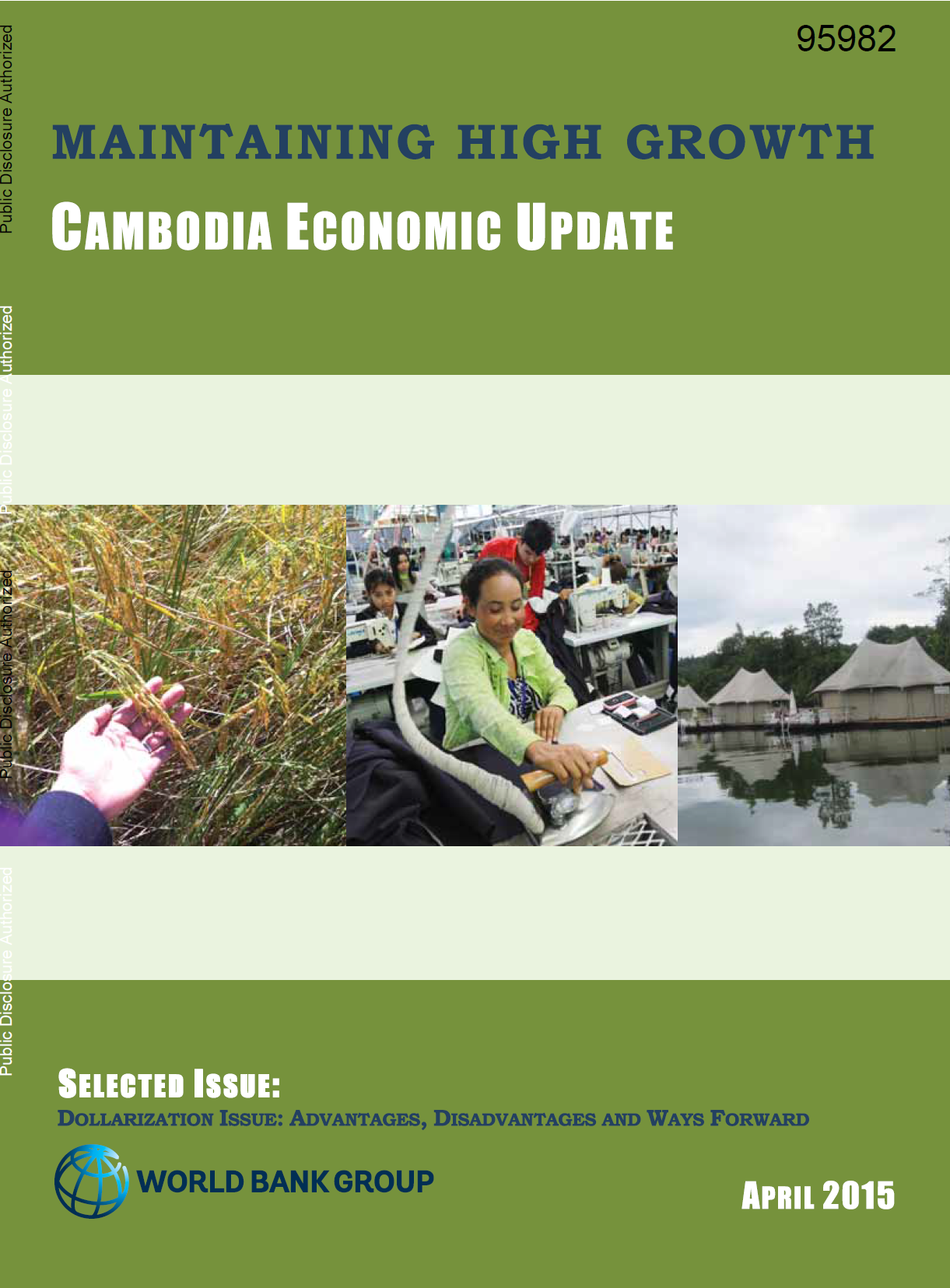
Cambodia Economic Update: Maintaining High Growth
Publication Year: April, 2015 / Sources: World Bank GroupThe Cambodia Economic Update (CEU) is produced bi-annually to provide up-to-date information on macroeconomic developments in Cambodia. It is published and distributed widely to the Cambodian authorities, the development partner community, the private sector, think tanks, civil society organizations, non-government organizations, and academia.
Download: English | Khmer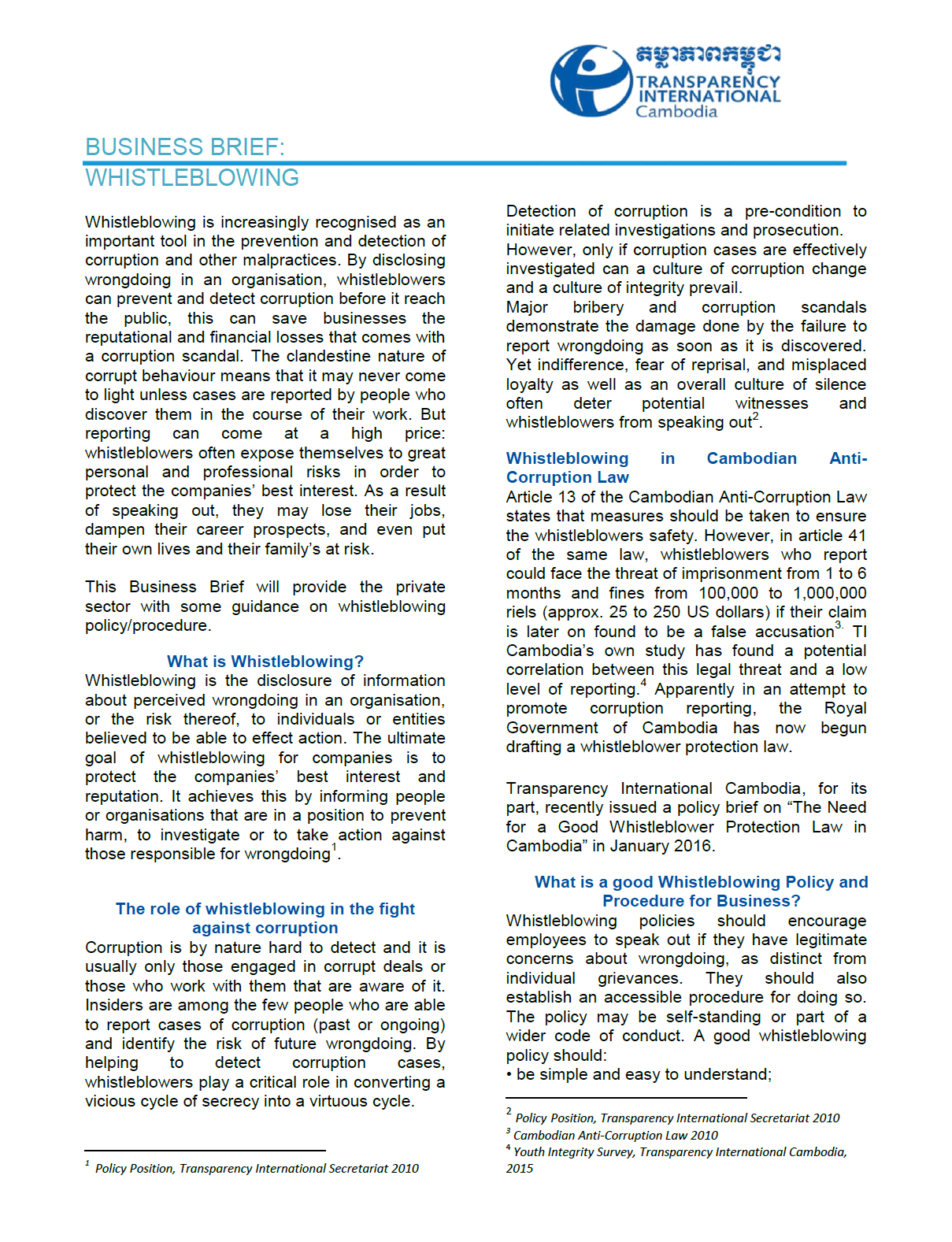
Business Brief: Whistleblowing
Publication Year: 2016 / Sources: Transparency International CambodiaWhistleblowing is increasingly recognised as an important tool in the prevention and detection of corruption and other malpractices. This paper will demonstrate what is Whistleblowing? The role of Whistleblowing in the fight against corruption, Whistleblowing in Cambodian Anti-Corruption law, What is a good Whistleblowing policy and procedure for business? and Why businesses need to have Whistlebowing policy?
Download: English | Khmer
Asian Development Outlook 2016: Asia’s Potential Growth
Publication Year: 2016 / Sources: Asian Development BankGross domestic product (GDP) in the region will expand by 5.7% in 2016 and 2017, decelerating from 5.9% in 2015 in a difficult and uncertain global environment. Despite the slight dip, the region will contribute around 60% of global growth in the next 2 years, close to its contribution in the past 5 years.
Download: English | Khmer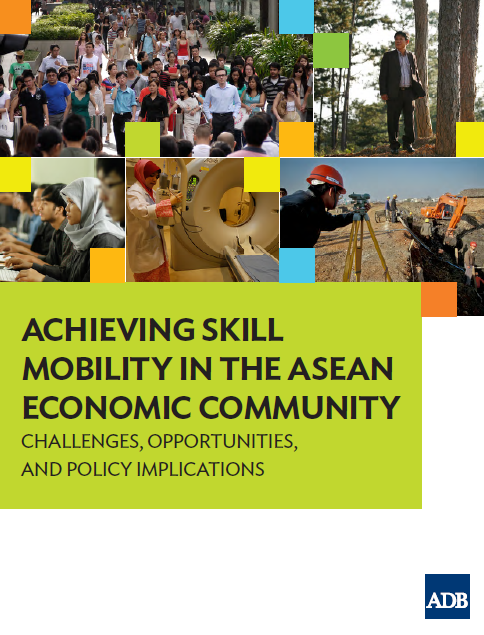
Achieving Skill Mobility in the ASEAN Economic Community: Challenges, Opportunities, and Policy Implications
Publication Year: 2015 / Sources: Asian Development BankDespite clear aspirations by the Association of Southeast Asian Nations (ASEAN) to create an effective framework to facilitate movements among skilled professionals within the ASEAN Economic Community (AEC) by December 2015, progress on the ground has been slow and uneven. The challenge ASEAN Member States face is threefold.
Download: English | Khmer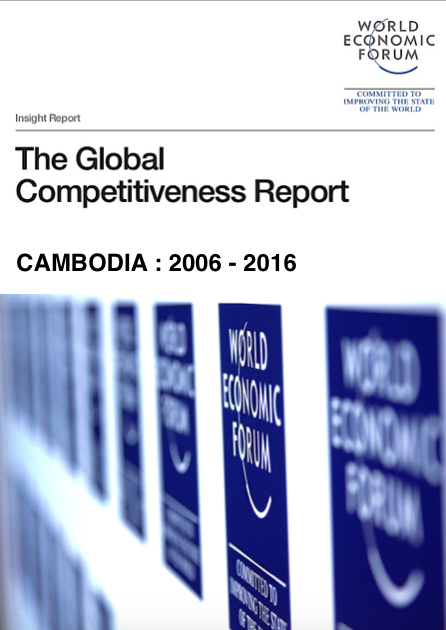
Global Competitiveness Report-Cambodia : 2006-2016
Publication Year: 2006 to 2016 / Sources: World Economic ForumThe Global Competitiveness Report (GCR) is a yearly report published by the World Economic Forum. The report “assesses the ability of countries to provide high levels of prosperity to their citizens. This in turn depends on how productively a country uses available resources. Therefore, the Global Competitiveness Index measures the set of institutions, policies, and factors that set the sustainable current and medium-term levels of economic prosperity.”
Download: English | Khmer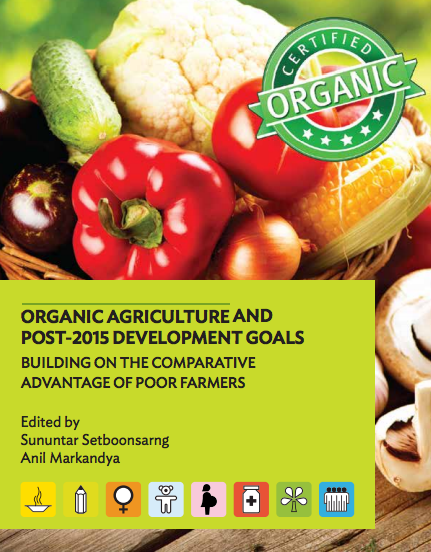
Organic Crops or Energy Crops? Options for Rural Development in Cambodia and the Lao People’s Democratic Republic
Publication Year: 2015 / Sources: Asian Development BankUsing the cases of the Lao People’s Democratic Republic (the Lao PDR) and Cambodia, this chapter compares the two options for the development of organic agriculture and biofuel with respect to a set of development goals—the focus of which includes not only the narrow economic benefit to the farmers, but also their impact on health, poverty reduction, the environment, and sustainable development overall. There is considerable interest in both these farming enterprises in the two countries, and the public and private sectors are already engaged in a range of activities related to them.
Download: English | Khmer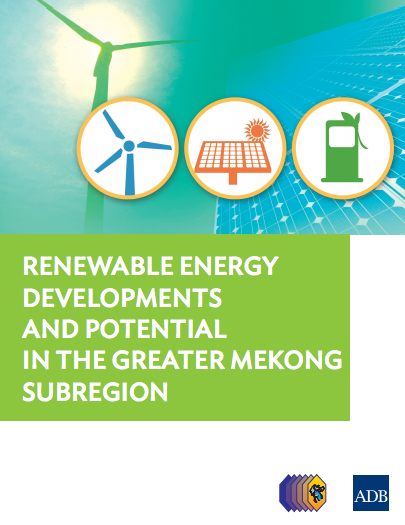
Renewable Energy Developments and Potential for the Greater Mekong Subregion – Cambodian Profil
Publication Year: 2015 / Sources: Asian Development BankRenewable energy is a challenge, but also an opportunity for new industries, employment, and new ways to reduce dependency on fuel imports, provide electricity to poor remote areas, reduce air pollution, and provide a healthier environment.
The development of renewable energy resources in Cambodia has been hampered by the lack of technical knowledge and funds. Renewable energy initiatives are mostly research and demonstration projects. While renewable energy development is strongly encouraged by the government, appropriate policies and financial support are still evolving.
Download: English | Khmer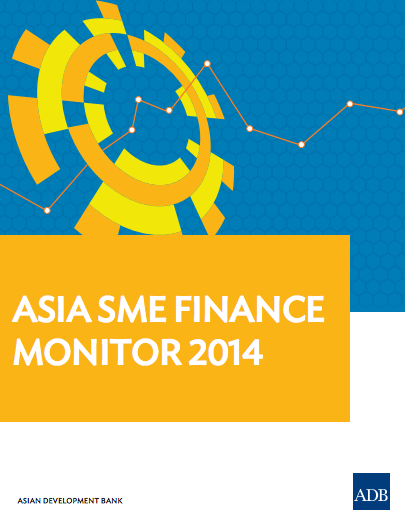
Asia Small and Medium-sized Enterprise (SME) Finance Monitor 2014 – Cambodia Profile
Publication Year: 2015 / Sources: Asian Development BankRecent global economic slowdown requires a new growth model for Asia, where small and medium enterprises play a greater role in boosting national productivity. According to the Census 2014, Cambodia’s micro, small, and medium-sized enterprises (MSMEs) accounted for 99.8% of all enterprises in the country, totaling 512,870 in 2014.
Download: English | Khmer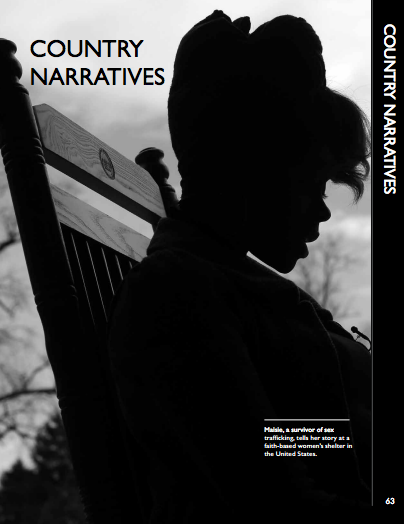
Trafficking In Persons Report 2015 – Country Narratives: Cambodia
Publication Year: 2015 / Sources: U. S. Department Of StateCambodia is a source, transit, and destination country for men, women, and children subjected to forced labor and sex trafficking. Cambodian adults and children migrate to other countries within the region and, increasingly, the Middle East for work; many are subjected to sex trafficking or forced labor on fishing vessels, in agriculture, construction, factories, or domestic servitude.
Download: English | Khmer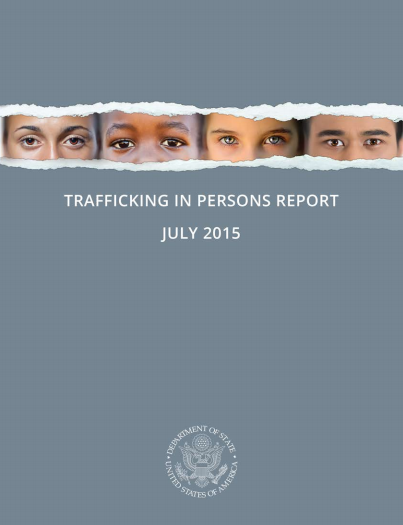
Introduction – Trafficking In Persons Report 2015
Publication Year: 2015 / Sources: Department of State - United States of America“Trafficking in persons is an insult to human dignity and an assault on freedom. Whether we are talking about the sale of women and children by terrorists in the Middle East, the sex trafficking of girls lured from their homes in Central Europe, the exploitation of farm workers in North America, or the enslavement of fishermen in Southeast Asia, the victims of this crime each have a name. And they each have been robbed of their most basic human rights.” – Secretary of State John F. Kerry
Download: English | Khmer